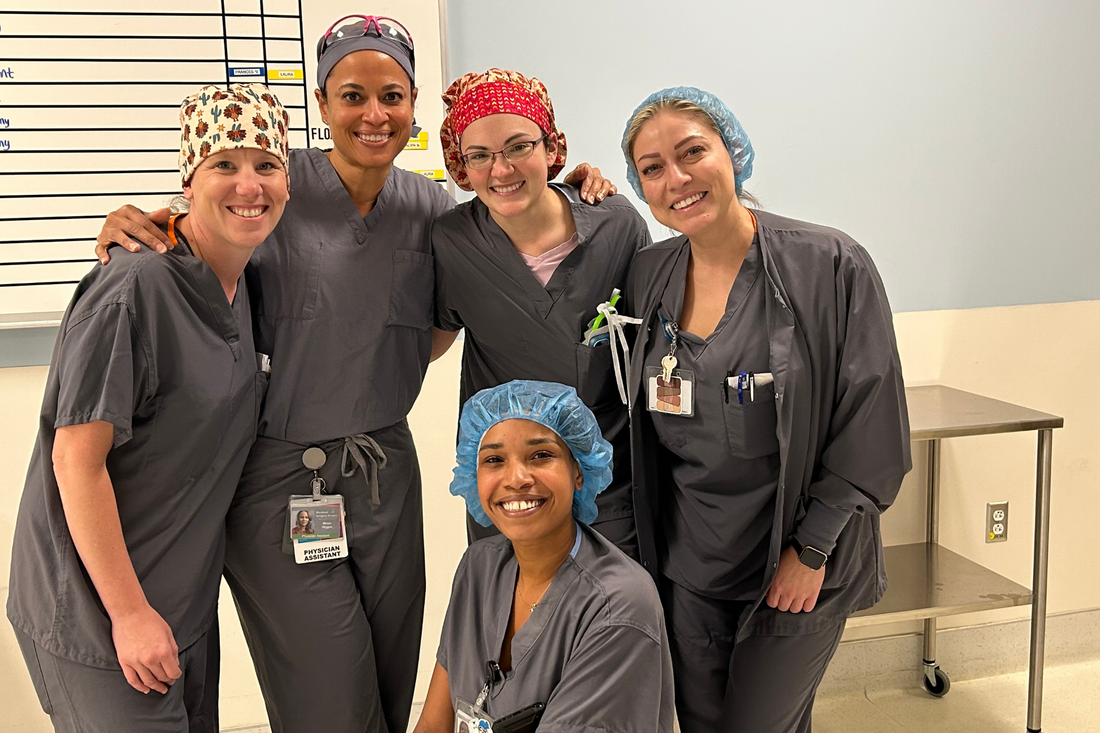When it comes to performing complex surgeries, teamwork is absolutely crucial. In the high-pressure environment of the operating room, every second counts, and the ability to work together seamlessly can mean the difference between life and death for a patient. In this blog post, we will explore the importance of teamwork in the operating room and how it contributes to successful surgical outcomes.
What is teamwork in the operating room?
Teamwork in the operating room refers to the coordinated efforts of a group of healthcare professionals, including surgeons, nurses, CRNAs, anesthesiologists, surgical technologists, physician assistants and other support staff, who work together to provide the best possible care for the patient. Each member of the team has a specific role and responsibilities, and their actions are interdependent.
Why is teamwork important in the operating room?
1. Improved patient outcomes: When a surgical team functions well together, patient outcomes are significantly improved. Studies have shown that effective teamwork reduces the risk of surgical errors, complications, and infections.
2. Efficient workflow: In the operating room, time is of the essence. A well-coordinated team can perform surgeries more efficiently, reducing the duration of the procedure and minimizing the patient's exposure to anesthesia and potential complications.
3. Enhanced communication: Effective communication is a cornerstone of successful teamwork in the operating room. Clear and concise communication among team members ensures that everyone is on the same page, leading to better decision-making and problem-solving during surgery.
How does teamwork contribute to patient safety?
1. Shared knowledge and expertise: In a surgical team, each member brings their unique knowledge and expertise to the table. By pooling their skills and experience, the team can make more informed decisions and provide the best possible care for the patient.
2. Reducing errors and complications: When team members work together, they can identify and rectify potential errors or complications more effectively. By cross-checking each other's actions and providing feedback, they create a safety net that minimizes the risk of mistakes.
3. Adaptability and resilience: In the operating room, unexpected situations can arise, requiring quick thinking and adaptability. A cohesive team can respond to these challenges more effectively, ensuring that the patient's safety is always the top priority.
How can teamwork be improved in the operating room?
1. Clear roles and responsibilities: Clearly defining each team member's roles and responsibilities helps avoid confusion and ensures that everyone knows what is expected of them.
2. Regular team training and simulations: Regular team training sessions and simulations can help improve communication, coordination, and problem-solving skills. These exercises allow the team to practice working together in a controlled environment.
3. Open and respectful communication: Encouraging open and respectful communication among team members fosters a culture of collaboration and trust. Team members should feel comfortable speaking up and sharing their concerns or suggestions.
4. Debriefing and continuous improvement: After each surgery, the team should engage in a debriefing session to discuss what went well and identify areas for improvement. This feedback loop allows the team to continuously learn and grow.
In conclusion, teamwork is of utmost importance in the operating room. By working together cohesively, healthcare professionals can provide safer and more effective care for their patients. Investing in teamwork training and fostering a culture of collaboration can lead to improved surgical outcomes and ultimately save lives.

